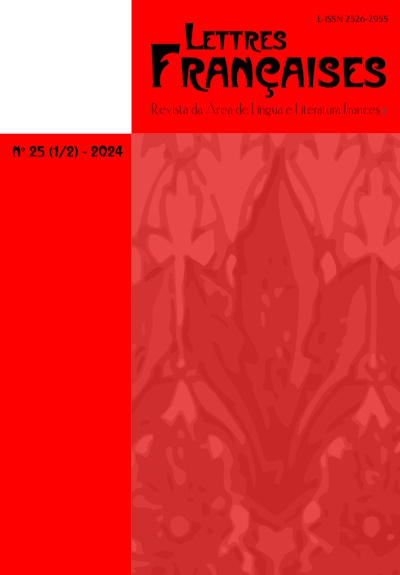Confissão e perdão em Les armoires vides d’Annie Ernaux
Palavras-chave:
Literatura francesa, Autobiografia, Romance autobiográfico, Culpa, PerdãoResumo
Annie Ernaux, ganhadora do prêmio Nobel 2022, é autora de uma extensa obra literária em língua francesa, essencialmente autobiográfica. O presente artigo faz uma análise de seu primeiro livro publicado, o romance autobiográfico Les armoires vides, à luz dos escritos de Jacques Derrida sobre as Confissões de Santo Agostinho e Jean-Jacques Rousseau, considerados como precursores da autobiografia. Segundo Derrida, esses dois autores partem da confissão de faltas menores na adolescência, para que erros mais graves cometidos na vida adulta sejam desculpados de antemão. Em Les armoires vides, Annie Ernaux também tece uma narrativa da (des)culpa, em que a gravidez indesejada e o aborto clandestino cometidos pela estudante universitária são apresentados como frutos de sua infância no meio popular, como filha de pequenos comerciantes de pouco estudo e hábitos grosseiros. As maldades e travessuras cometidas pela protagonista, assim como seu afastamento do meio social de seus pais ao entrar em contato com o mundo burguês da escola privada, são narrados de forma a mostrar a inexorabilidade de sua falta maior, eximindo-a de toda culpa.
Downloads
Publicado
Edição
Seção
Licença
Os manuscritos aceitos e publicados são de propriedade da Revista Lettres Françaises. É vedada a submissão integral ou parcial do manuscrito a qualquer outro periódico. A responsabilidade do conteúdo dos artigos é exclusiva dos autores. É vedada a tradução para outro idioma sem a autorização escrita do Editor ouvida a Comissão Editorial.

